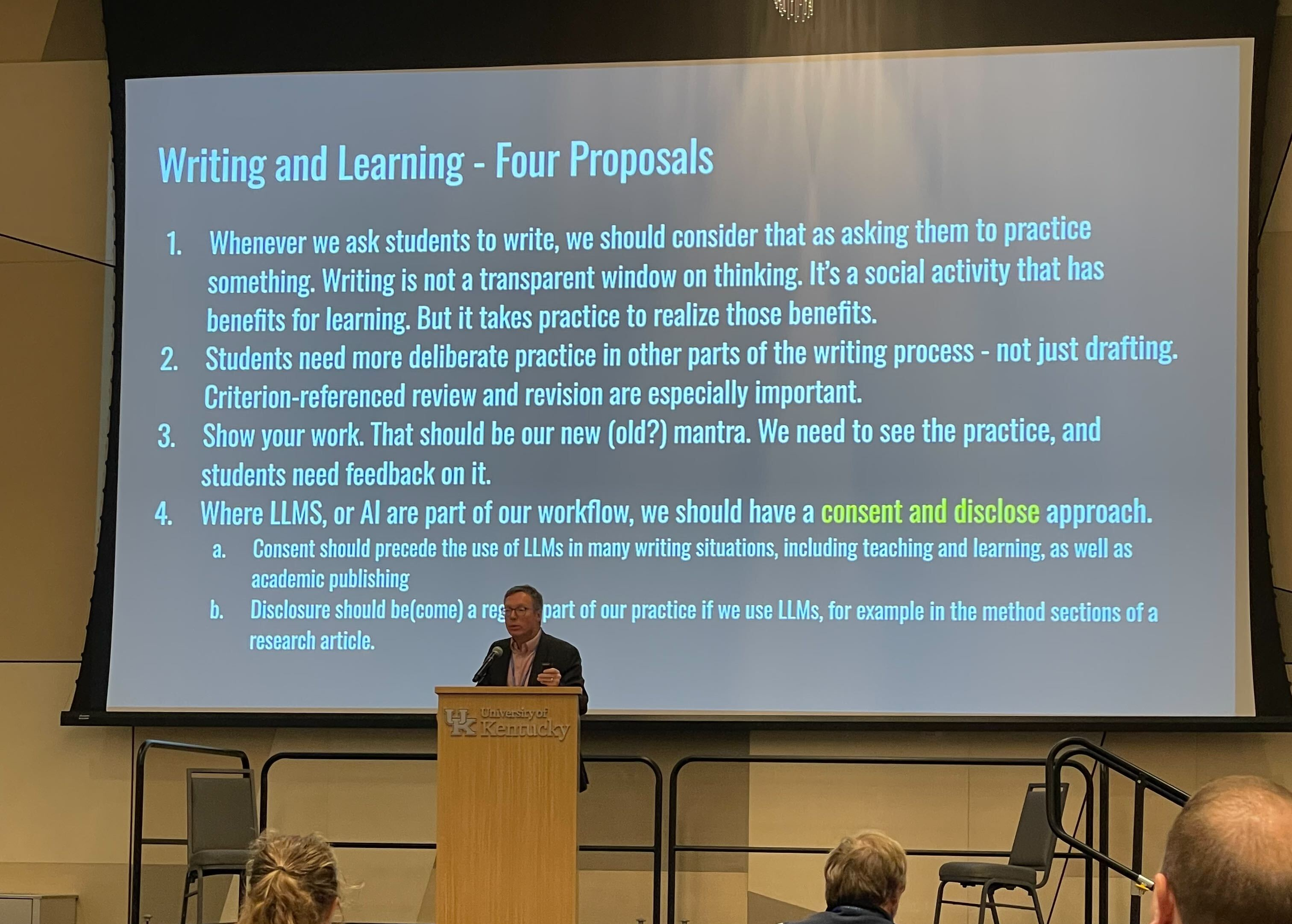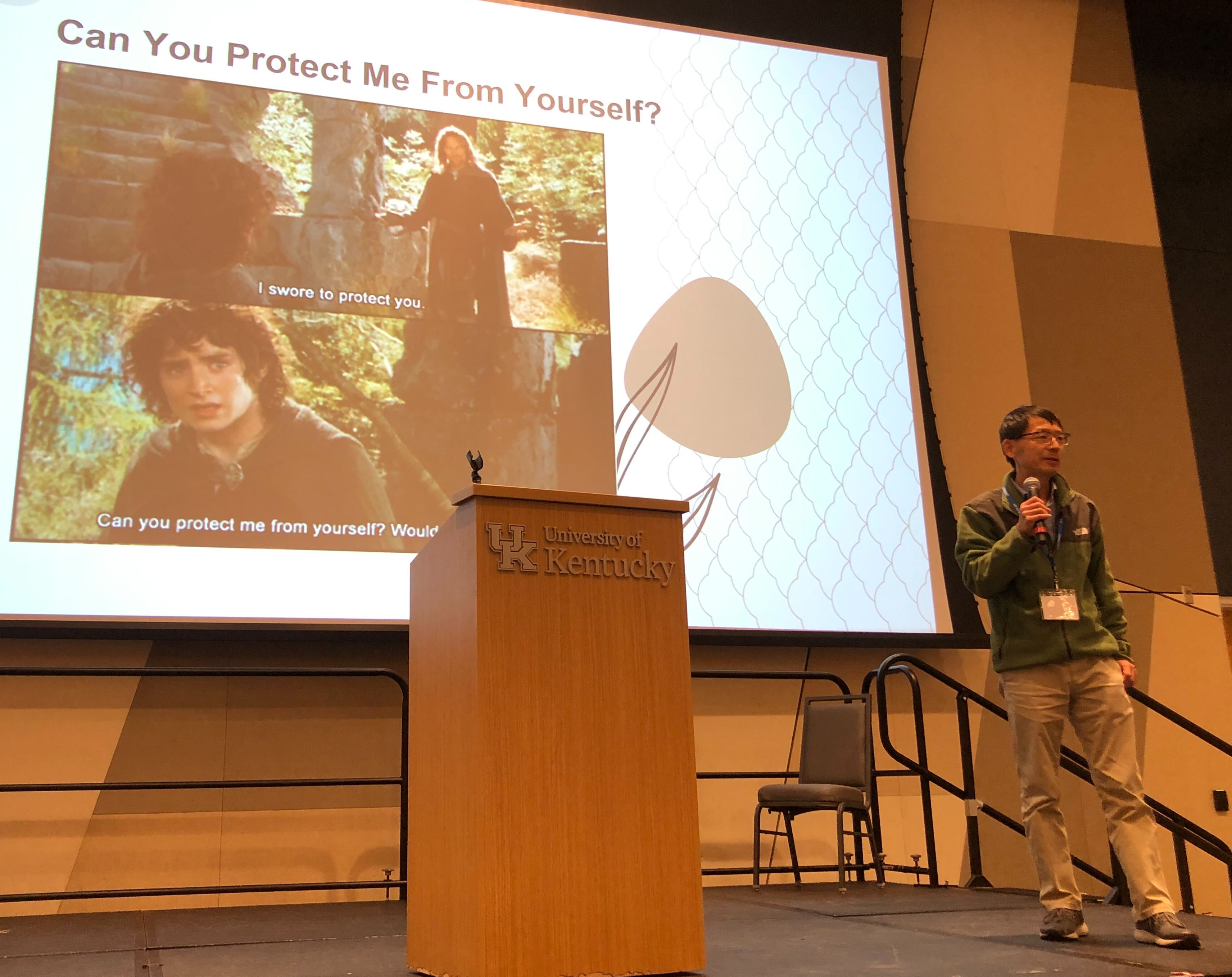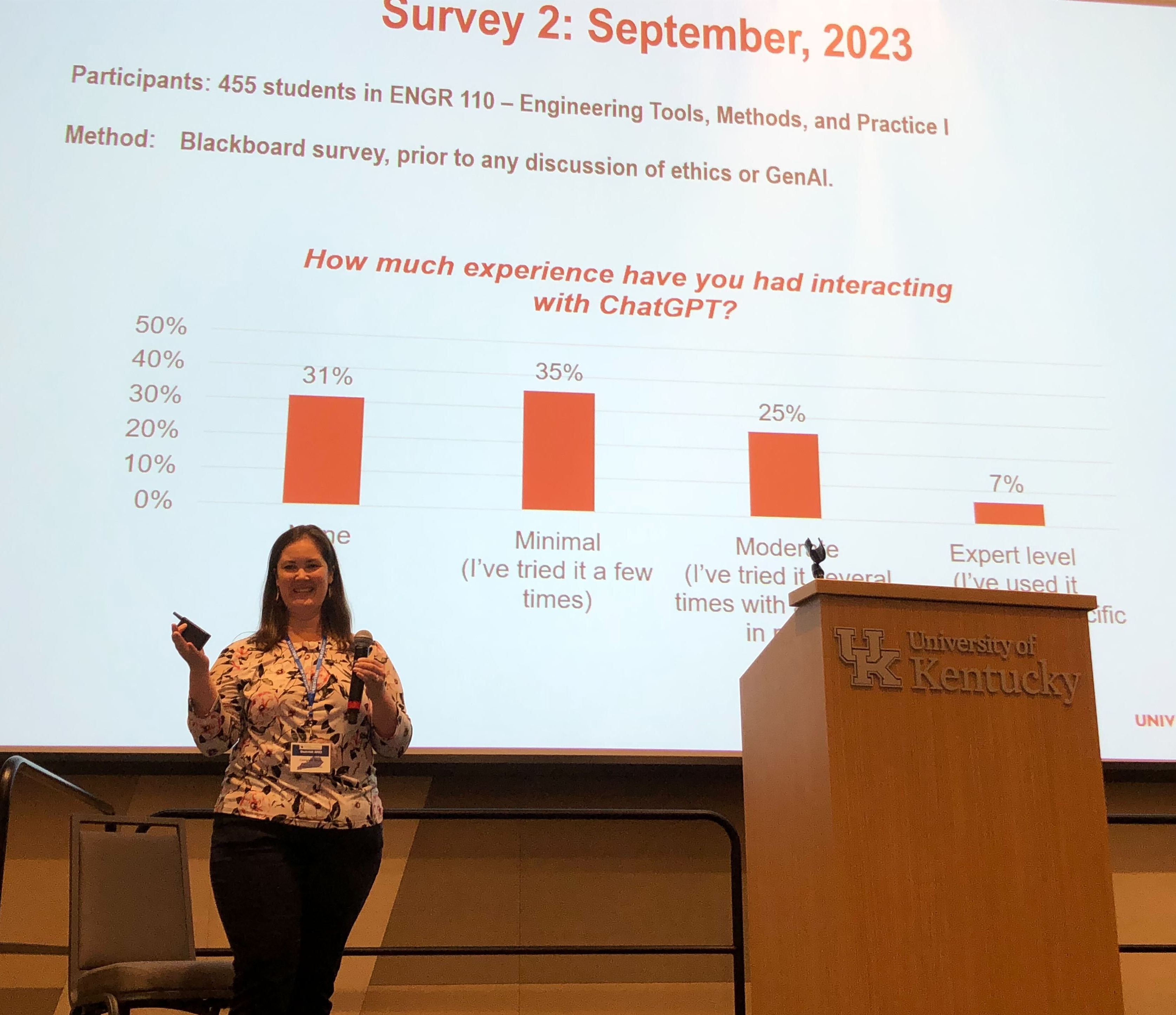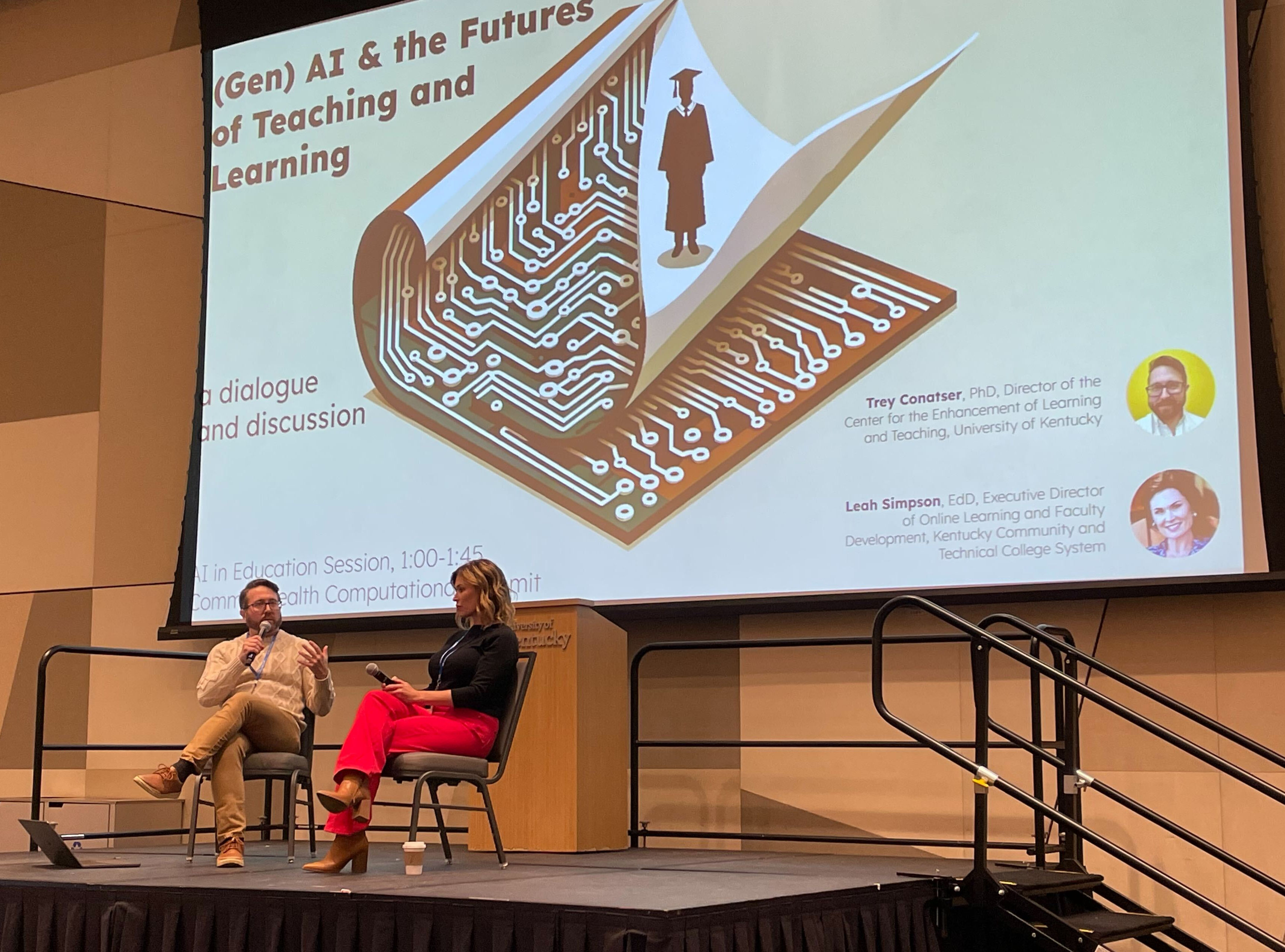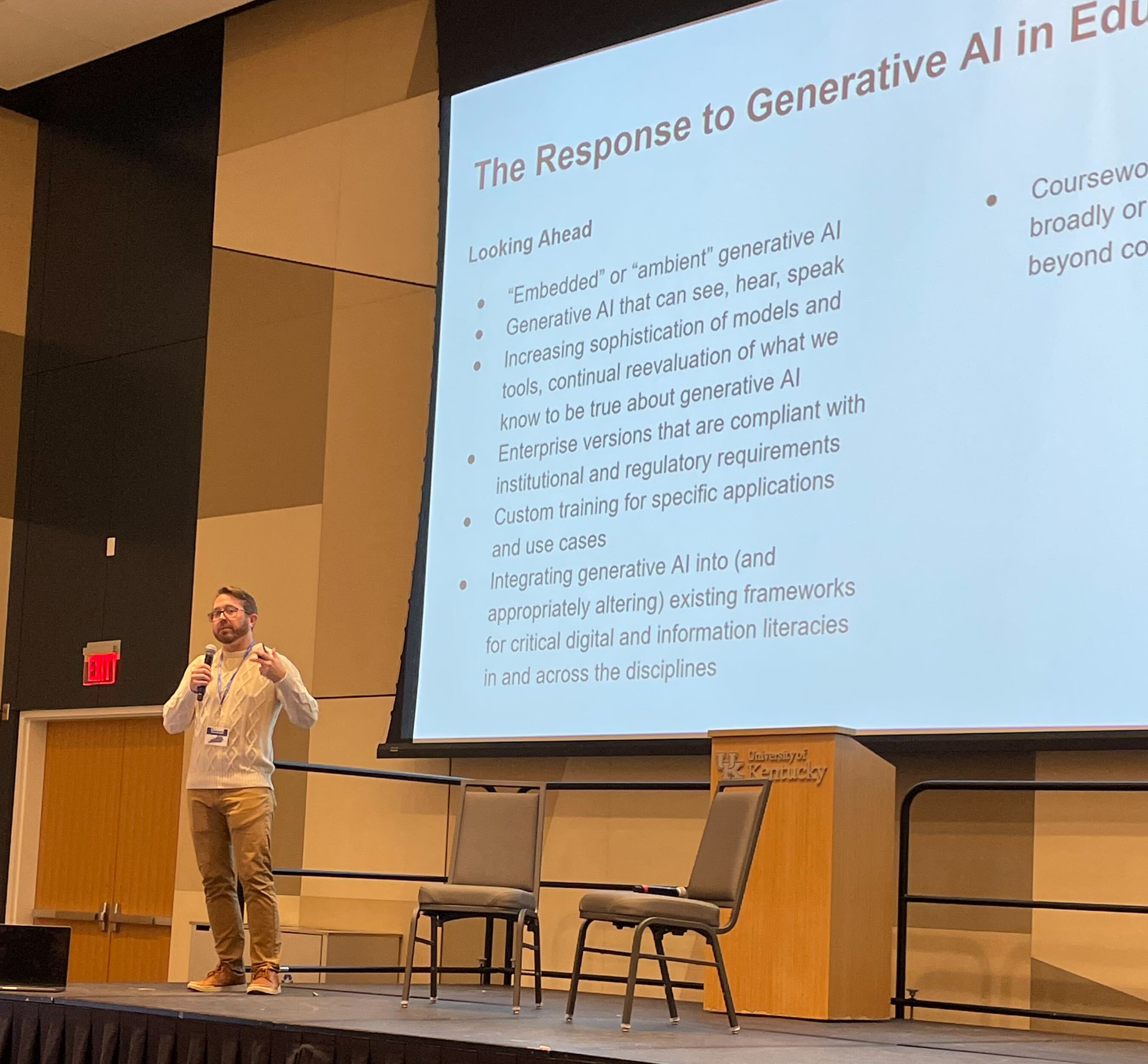Presenters represented Eastern Kentucky University, Kentucky Community and Technical College System, Transylvania University, University of Kentucky, University of Louisville, and Western Kentucky University. Below is the full agenda for the AI in Education session:
- AI and the Futures of Teaching and Learning: A Discussion
- Trey Conatser, Director of CELT, University of Kentucky
- Leah Simpson, Executive Director of Online Learning and Faculty Development, Kentucky Community and Technical College System
- Research and Scholarship on AI in Education
- "Charting the Digital Discourse: Understanding the Research and Instructional Value of Discursive Exchanges with AI," C. Sean Burns, Associate Professor, School of Information Sciences, University of Kentucky
- "Empowering Education with AI: Unveiling Mark, Your Virtual Teaching Assistant," Yongsheng Lian, Professor, Department of Mechanical Engineering, University of Louisville
- "The Ethics of AI Chatbots from a First-Year Engineering Student Perspective: Surveys and Course Developments," Campbell Bego, Assistant Professor, Department of Engineering Fundamentals, University of Louisville
- "Generative AI for Medical Device Design," Kristi Bartlett, Assistant Professor, Department of Product Design, University of Kentucky
- Uses and Applications of AI in Education
- "Preparing Our Students for an AI-Enhanced Workplace," Lisa Blue, Instructional Specialist: STEM-H Teaching and Learning, Faculty Center for Teaching and Learning, Eastern Kentucky University
- "Correcting Chat: A Model for Take-Home Essays," Jaclyn Johnson, Lecturer, Department of Political Science, University of Kentucky
- "ChatGPT: An Accelerator of Creative Ideas," Katie Mullen, Lecturer, Department of Arts Administration, University of Kentucky
- "ChatGPT and Research Methods in the Psychology Classroom," Iva Katzarska-Miller, Professor of Psychology, Transylvania University
- "AI in Practice Reflection: Using Classroom Applications to Combat Industry Challenges," Winter Phong, Assistant Professor, Department of Arts Administration, University of Kentucky
- "Announcing the Planned UK AI Certificate," Judy Goldsmith, Professor, Department of Computer Science, University of Kentucky
